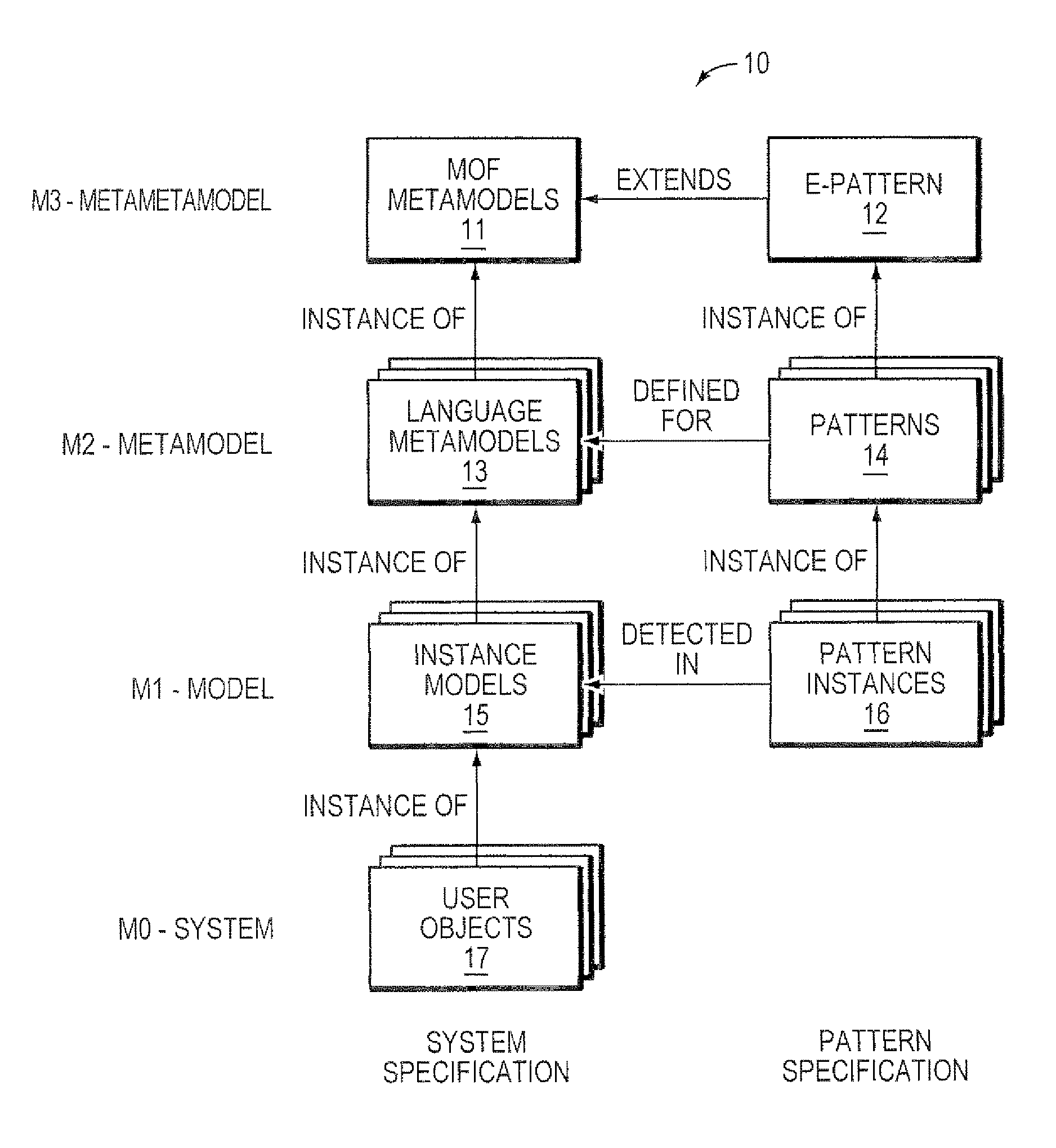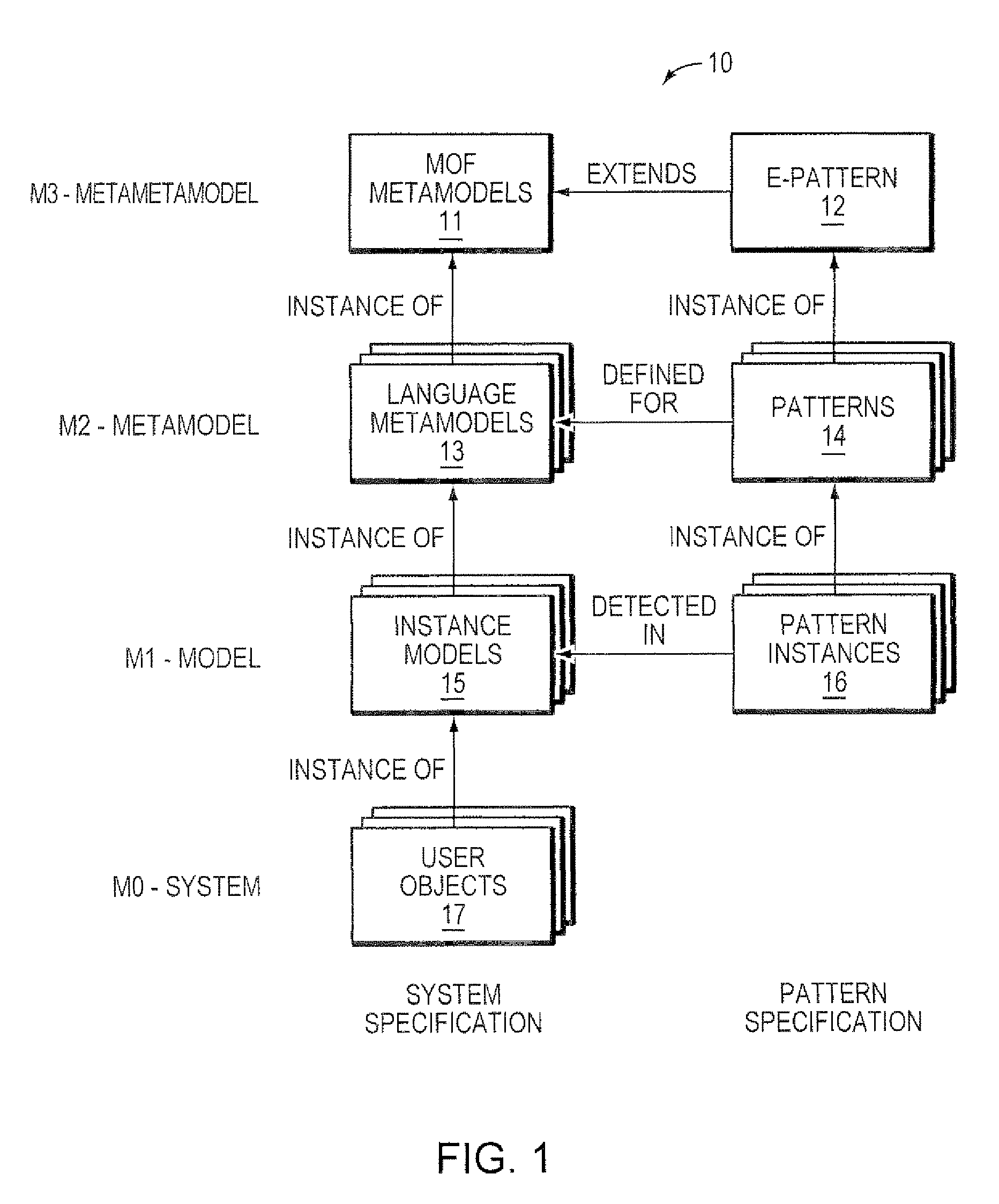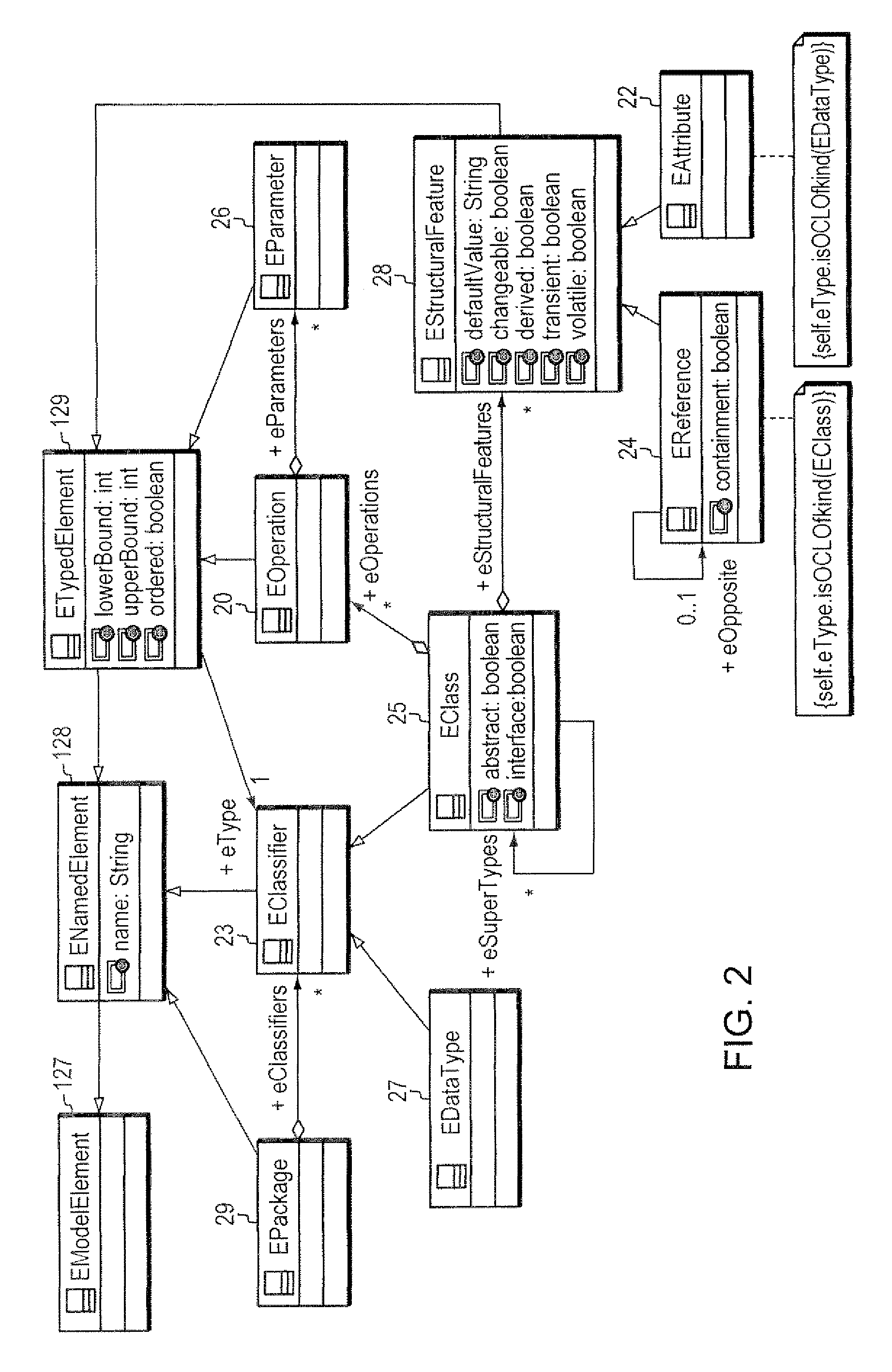Configurable pattern detection method and apparatus
a technology of pattern detection and configuration, applied in reverse engineering, instruments, computing, etc., can solve the problems of unobvious correspondence between the structure of the pattern and the detection algorithm, is usually complex to implement, and is difficult to maintain, so as to achieve the effect of easy and accurate reporting on the detection results
- Summary
- Abstract
- Description
- Claims
- Application Information
AI Technical Summary
Benefits of technology
Problems solved by technology
Method used
Image
Examples
working example
[0057]An example composite pattern 71 of the present invention is illustrated in FIGS. 7 and 8. By way of background the example is a simple variant of the known Gang of Four (GoF) composite pattern 31, shown in FIG. 3. The pattern's M2 target language is UML 2.0. It is classified as a structural pattern and is used to allow a client to treat both single components and collections of components identically. The pattern 31 highlights several roles a ‘component’ role 33 representing an instance of UML Interface, a ‘leaf’ role 35 representing an instance of UML Class that implements the ‘component’ interface, a ‘composite’ role 37 representing an instance of UML Class that implements the ‘component’ interface and also composes instances of the same interface, and finally a ‘compose’ role 39 representing an instance of UML operation defined by the ‘composite’ class and used to compose ‘component’ instances.
[0058]Representation of the composite pattern 31 in the present invention (as sho...
PUM
 Login to View More
Login to View More Abstract
Description
Claims
Application Information
 Login to View More
Login to View More - R&D
- Intellectual Property
- Life Sciences
- Materials
- Tech Scout
- Unparalleled Data Quality
- Higher Quality Content
- 60% Fewer Hallucinations
Browse by: Latest US Patents, China's latest patents, Technical Efficacy Thesaurus, Application Domain, Technology Topic, Popular Technical Reports.
© 2025 PatSnap. All rights reserved.Legal|Privacy policy|Modern Slavery Act Transparency Statement|Sitemap|About US| Contact US: help@patsnap.com



